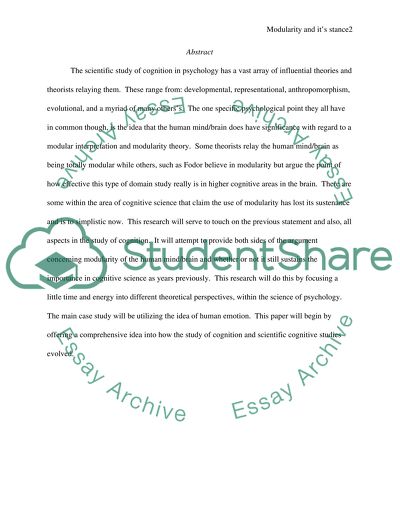Cite this document
(“Modularity and Its Stance Today Essay Example | Topics and Well Written Essays - 2000 words”, n.d.)
Retrieved from https://studentshare.org/psychology/1535326-modularity-and-its-stance-today-in-cognitive-psychology
Retrieved from https://studentshare.org/psychology/1535326-modularity-and-its-stance-today-in-cognitive-psychology
(Modularity and Its Stance Today Essay Example | Topics and Well Written Essays - 2000 Words)
https://studentshare.org/psychology/1535326-modularity-and-its-stance-today-in-cognitive-psychology.
https://studentshare.org/psychology/1535326-modularity-and-its-stance-today-in-cognitive-psychology.
“Modularity and Its Stance Today Essay Example | Topics and Well Written Essays - 2000 Words”, n.d. https://studentshare.org/psychology/1535326-modularity-and-its-stance-today-in-cognitive-psychology.


